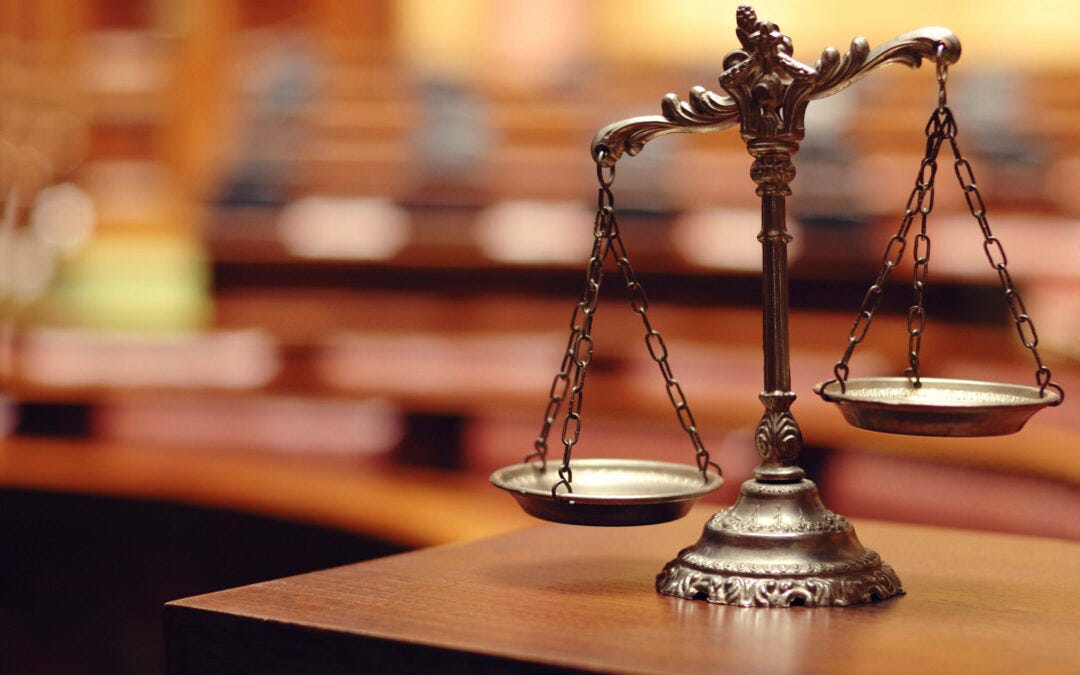Bonus 176: Law, Lawlessness, and Doomerism
Law is not—and never will be—a perfect constraint on government action. But claims that legal limits have become wholly irrelevant to the current administration are not just wrong; they're dangerous.
Welcome back to the weekly bonus content for “One First.” Although Monday’s regular newsletter (and unscheduled issues like Tuesday’s on the potential deployment of Texas National Guard troops to Chicago) will remain free for as long as I’m able to do this, I put much of the weekly bonus issue behind a paywall as an added incentive for those who are willing and able to support the work that goes into putting this newsletter together every week. I’m grateful to those of you who are already paid subscribers, and I hope that those of you who aren’t will consider a paid subscription if and when your circumstances permit.
Notwithstanding the overnight news that the Solicitor General is seeking very expedited merits review from the Supreme Court in the tariffs case, I wanted to use this week’s bonus issue to write about an exasperating attitude I’ve increasingly been seeing and/or confronting out in the world—both in in-person conversations and on social media. At its core, the attitude is that, given the Trump administration’s behavior, law doesn’t (and legal constraints don’t) matter anymore. Thus, every time I bring up or post about a lower-court ruling against some new Trump initiative, or why some proposed action would violate existing legal constraints, I inevitably get some volume of responses along the lines of “it doesn’t matter,” “it won’t make a difference,” and/or “I’m tired of academics insisting that these constraints are relevant.”
As I explain below the fold, there are two very different problems with these arguments, but they both merit fleshing out. First, as a factual matter, these arguments are simply silly. Beyond the fact that all of us are still very much living in a world in which our behavior is shaped by scores of legal rules, one need not look especially hard to see all kinds of ways in which law and legal constraints are regularly having a major influence on the current administration—even if they are having less of an influence than many of us might prefer and/or less of an influence than they would’ve had on any prior administration. And although there are far too many examples of this administration acting in defiance of legal constraints (most recently in destroying an alleged Venezuelan drug boat that we apparently could have interdicted), that doesn’t actually prove that law and legal constraints are irrelevant; it proves that they are imperfect. Alas, that has been true in far calmer times than the ones we live in today.
Second, and more importantly, these arguments are, in my view, affirmatively dangerous. It’s not just that authoritarian (or authoritarian-curious) regimes depend upon a desensitized, demoralized, and even fatalistic public to arrogate power; it’s that collapsing the distinction between what the government claims it can do and what it’s allowed to do may end up inflicting far more damage on the rule of law than the underlying malfeasance. As usual, Justice (Robert) Jackson may have put it best in his dissenting opinion in Korematsu, where he contrasted the difference between internment itself and Justice Black’s majority opinion providing a legal rationalization for it:
Much is said of the danger to liberty from the Army program for deporting and detaining these citizens of Japanese extraction. But a judicial construction of the due process clause that will sustain this order is a far more subtle blow to liberty than the promulgation of the order itself. A military order, however unconstitutional, is not apt to last longer than the military emergency. Even during that period a succeeding commander may revoke it all. But once a judicial opinion rationalizes such an order to show that it conforms to the Constitution, or rather rationalizes the Constitution to show that the Constitution sanctions such an order, the Court for all time has validated the principle of racial discrimination in criminal procedure and of transplanting American citizens.
TL;DR: Law matters—even, if not especially, in the breach.
For those who are not paid subscribers, we’ll be back (no later than) Monday with our regular coverage of the Supreme Court. For those who are, please read on.



